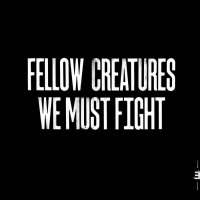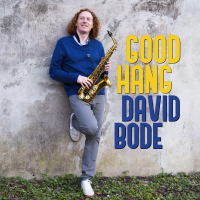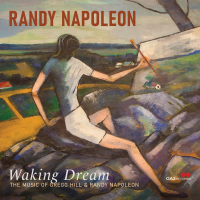Home » Jazz Articles » Extended Analysis » Louis Armstrong: The Complete Louis Armstrong Columbia &...
Louis Armstrong: The Complete Louis Armstrong Columbia & RCA Victor Studio Sessions 1946-66
Louis Armstrong
trumpet and vocals1901 - 1971
That era—to the purposes of this set—starts after five RCA Victor sessions of various quality, the first being a fascinating two song Esquire All-American 1946 Award Winners date, which sets Armstrong (as well as

Charlie Shavers
trumpet1920 - 1971

Don Byas
saxophone, tenor1912 - 1972

Remo Palmier
guitar1923 - 2002

Chubby Jackson
bass, acoustic1918 - 2003
That sixth session, June 10, 1947, is producer
Leonard Feather
b.1914
Jack Teagarden
trombone1905 - 1964

Earl Hines
piano1903 - 1983

Big Sid Catlett
drums1910 - 1951

Hoagy Carmichael
piano1899 - 1981
In the seven years between the 1947 RCA All Stars date and the first Columbia session, Armstrong's studio recordings were made almost exclusively for Decca, often with strings etc. At the same time, he—with the help of his (in)famous manager Joe Glaser—kept the All Stars out on the road for very long stretches, and so the first few years of the group were marked by personnel changes. Teagarden was replaced by

Trummy Young
tromboneb.1912

Barney Bigard
clarinet1906 - 1980
Billy Kyle
pianob.1914

Arvell Shaw
bass, acoustic1923 - 2002
Barrett Deems
drumsb.1914
Columbia Records' jazz A&R (artists and repertoire) man George Avakian wanted the Armstrong who jazz fans idealized, and succeeded in getting him. Verve Records' head
Norman Granz
b.1918
Ella Fitzgerald
vocals1917 - 1996

Oscar Peterson
piano1925 - 2007

W.C. Handy
arranger1873 - 1958

Fats Waller
piano1904 - 1943
(While
Milt Gabler
b.1911There is a tendency to make "jazz of the fifties" mean Miles, Mingus, and the other modern lights blazing the post-Parker trail. However, many whose reputations were made much earlier—

Count Basie
piano1904 - 1984

Duke Ellington
piano1899 - 1974

Billie Holiday
vocals1915 - 1959

Elvis Presley
vocals1935 - 1977

Clifford Brown
trumpetb.1930

Max Roach
drums1925 - 2007

Ruth Brown
vocals1928 - 2006

Bob Dylan
guitar and vocalsb.1941

James Brown
vocals1933 - 2006
Louis Armstrong Plays W.C. Handy, recorded that very year in Chicago, a city that figures heavily in the Armstrong saga, might be his defining work. Thirty-one years after his recording debut, the skills as singer, player, and bandleader are honed to mastery, bringing authority that characterizes everything he touches. Certainly this and Satch Plays Fats are the centerpiece of this box. Contrasting his 1929 recording of ""St Louis Blues"" with the one on the Handy album is to take a masterclass in how time benefits an artist. The earlier version is great, fully of fire and vitality. But the 1954 take is on a whole other planet, starting off with the bridge played as a rolling habanera (as its 1914 sheet music directed it be played). The first thing that strikes the listener is the sheer glory of his trumpet sound. Next is the subtlety in the playing.

Wynton Marsalis
trumpetb.1961
Handy is a showcase of strengths, and not just the leader's. The whole band lays into the material with palpable comfort— Bigard at his post-Ellington peak, Kyle restrained and supple, Young's trombone gorgeous, with the rhythm section on point throughout. It is worth pointing out that the All Stars weren't playing these tunes on the road. Rather, they were chosen strictly for this record. The in-studio process of development is documented both in the extensive notes and on these discs. We hear run-throughs and earlier takes that evolve (and quickly) to commanding finished renditions. We also hear that Velma Middleton is a stone pro who unfailingly hits her marks.
(Not included are Armstrong's private home tapes of his solo practice of these songs, acapella and/or solo trumpet from sheet music. Their sound quality is abysmal, so it's not comfortable listening. But to the devoted student, they're fascinating.)
Two things to point out on the technical side: First, the sound of this band had never been captured so beautifully before. Secondly, Avakian produced finished takes in a few cases by editing different performances together, and his mastery of the process bears at least as much remark.
The following year brought forth the accompanying gem, Satch Plays Fats. As they did with Handy, Pops and the All-Stars to work on the music of a composer comfortable to the band,

Fats Waller
piano1904 - 1943
Fats wasn't just a grab bag jam session. As with the Handy album, real thought went into everything from song selection to soloing order. Although Waller wrote his share of great instrumental music, the decision was made to stick to vocal tunes, as a way to keep a steady mood through the whole LP. Louis bypassed ""The Joint Is Jumpin,'"" saying "Only Fats could pull that one off just right."
Again, the band played beautifully, and Avakian produced subtly but with a firm hand. The outtakes and rehearsals reveal not only how much Avakian had to do with the end results, but they point no less to Armstrong's leadership and incredible technique, not only as player, but also as leader. And— as is very much the case with the Handy album—Billy Kyle's previously unsung role as wingman to both producer and bandleader is finally revealed. Students of jazz record production will find the rehearsals and alternate takes rewarding, as hearing Armstrong, Kyle, and Avakian interact toward their common musical goals is illuminating. It is joyous eavesdropping, to be sure.
The third full Columbia album into which we make the deep dive is The Real Ambassadors, Iola and

Dave Brubeck
piano1920 - 2012

Carmen McRae
vocals1920 - 1994

Louis Jordan
saxophone, alto1908 - 1975
The flashpoint of the record is its lyrics, which speak directly to race, God, civil rights, the role of jazz as a form of world ambassadorship, and several other subjects.
In 1957, Armstrong was interviewed by journalist Larry Lubenow, then a 21 year old student writing for The Grand Forks Herald. Grand Forks is on the North Dakota/Minnesota border. Very remote. Louis Armstrong was at that point in his career a beloved, safe emeritus figure of jazz. What could be less controversial?
Lubenow mentioned Arkansas' Governor Orville Faubus, who had blocked nine black students from walking through the doors of Little Rock's Central High School, calling in the state's National Guard to keep them out, even as a crowd of angry rednecks threw trash and rocks at the kids. Armstrong—on the record—angrily described as "a no-good motherfucker" before softening it to "ignorant plowboy." He called Secretary of State John Foster Dulles "another motherfucker," President Eisnhower had "no guts."
Armstrong continued, ""The people [in Europe] ask me what's wrong with my country, what am I supposed to say?"
Obviously, this was explosive, and when urged to soften his statements (reportedly by Joe Glaser), he would not.
"Don't take nothing out of that story. That's just what I said and still say."
Armstrong's voice had animated the great lyrics of

Johnny Mercer
composer / conductor1909 - 1976

Ira Gershwin
composer / conductor1896 - 1983
(Before citing ""Strange Fruit,"" it is likely safe to assume Pops thought Billie Holiday had a greater lock on that song even than Fats Waller had on ""The Joint Is Jumpin.'"")
1961's The Real Ambassadors addressed all of this head on. The Brubeck's were passionate about social justice. Dave had by this point a long history of putting his money where his conscience was, and Iola put lyrics to the serious concepts she saw as the innermost aspects of Pops' life. Dave, to his eternal credit, did not write what he thought would be easy for Armstrong, a la faux trad jazz. Instead, he wrote to the best of his own formidable abilities. His classic ""The Duke,"" a very tricky modernist composition, was recast as ""You Swing Baby,"" with Louis and Carmen virtuosically goading each other. As playful duets go, it ranks with

Antonio Carlos Jobim
piano1927 - 1994

Elis Regina
vocalsb.1945

Ray Charles
piano and vocals1930 - 2004

Betty Carter
vocals1929 - 1998
Ambassadors afforded Armstrong the opportunity to sing directly about age, race, critics, and several other subjects that were real life for him. Some things are lighthearted. Others have a profundity that only comes to a person who has been on the receiving end of humanity's best and worst. Brubeck's rhythm section carries the lion's share of the program, with the All Stars featured in a few places. The inclusion of
 "
data-original-title="" title="">Lambert as the Greek chorus seems inevitable for its era, but their vocal gymnastics often sound stilted, especially where heard side by side with Pops' and Carmen's fluid performances. This being said, Ambassadors was ahead of its time, not only for its subject matter, but the way it incorporated jazz into a revue show setting. Its freshness still resounds, and the album's stature has grown in the sixty years since work on it began.
"
data-original-title="" title="">Lambert as the Greek chorus seems inevitable for its era, but their vocal gymnastics often sound stilted, especially where heard side by side with Pops' and Carmen's fluid performances. This being said, Ambassadors was ahead of its time, not only for its subject matter, but the way it incorporated jazz into a revue show setting. Its freshness still resounds, and the album's stature has grown in the sixty years since work on it began. The remaining material in the box—singles, outtakes, one-off's, and even a record made to help sell Remington Razors—is at least entertaining, occasionally brilliant (notably a crackling, energetic ""Mack The Knife"" with Lotte Lenya on board).
As this is a Mosaic box, it is not just about the music but the quality of its presentation. The production team of Richie Noorigan, David Ostwald, Ricky Riccardi and Scott Wenzel predictably have left no stone unturned. The good people at Meyer Media did a superb job with the audio transfers and mastered it beautifully, capturing warmth without losing vibrancy.
The enclosed liner booklet, with notes Ricky Riccardi (Pop's most ardent biographer), is similarly top shelf, largely a distillation of/supplement to his 2012 exuberant book What A Wonderful World: The Magic of Louis Armstrong's Later Years, with new information brought forth by access to previously unearthed tapes, as well as unpublished photos from the eye-popping Jack Bradley Collection. Riccardi has long preached the Evangel that is Louis, producing and/or co-producing about fifteen packages, including complete CD sets of the Armstrong Verve sessions, as well as the venerated duets with

Ella Fitzgerald
vocals1917 - 1996
(Not that it was all downhill after these recordings. There was greatness still to come, most notably an essential All Stars LP of Ellington tunes, with Duke himself on piano. A two CD set of this, The Great Summit, groups the master takes on the first disc, with rehearsals, alternates and breakdowns on the second. As the Mosaic box points up to Avakian's enormous contributions, so does Summit to Bob Thiele's.)
We have here a 7 disc deep dive with a hefty price tag ($119), providing false starts, alternate takes, and some recordings that are mainly of historical interest. But the main portion of this material—the '47 RCA All Stars date, Handy, Fats, Ambassadors and several of the singles— are as good as anything gets. For those who just need master takes in order to get their fill, the Columbia albums are out there on CD, with great sound, formidable notes, and a smattering of bonus tracks. But if you're the type to obsessively collect Criterion DVD's as much for the bonus stuff as the pristine restoration of great film...
Aside from the highlights of this set being some of the best jazz has to offer, the chance to look closely at Armstrong in action is indispensable. He does not tend to his own cult of personality, nor does he attempt to make a mystery of himself. Terry Teachout, whose Pops is the gold standard for musician bios, said "Armstrong was the sort of person where the more you knew about him, the more you love." This box gives us more, exhaustively documenting not only the work itself, but also the beautiful giant who made it. ">
Personnel
Louis Armstrong
trumpet and vocalsTrummy Young
tromboneBilly Kyle
pianoBarney Bigard
clarinetArvell Shaw
bass, acousticBarrett Deems
drumsVelma Middleton
vocalsVic Dickenson
tromboneCharlie Beal
pianoZutty Singleton
drumsRed Callender
bass, acousticAllan Reuss
guitarEarl Mason
pianoElmer Warner
guitarButch Ballard
drumsErnest Thompson
saxophone, baritoneJohnny Sparrow
saxophone, tenorAmos Gordon
saxophone, altoDon Hill
saxophone, altoDave Brubeck
pianoAdditional Instrumentation
Additional personnel
Album information
Title: The Complete Louis Armstrong Columbia & RCA Victor Studio Sessions 1946-66 | Year Released: 2021 | Record Label: Mosaic Records
Tags
Comments
PREVIOUS / NEXT
Support All About Jazz
 All About Jazz has been a pillar of jazz since 1995, championing it as an art form and, more importantly, supporting the musicians who make it. Our enduring commitment has made "AAJ" one of the most culturally important websites of its kind, read by hundreds of thousands of fans, musicians and industry figures every month.
All About Jazz has been a pillar of jazz since 1995, championing it as an art form and, more importantly, supporting the musicians who make it. Our enduring commitment has made "AAJ" one of the most culturally important websites of its kind, read by hundreds of thousands of fans, musicians and industry figures every month.











 Buy Now
Buy Now


















